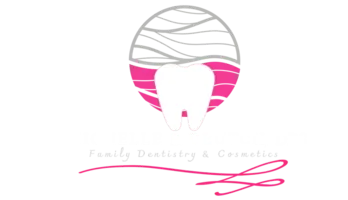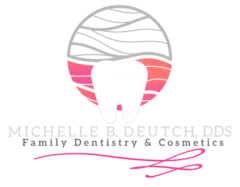Gum Emergencies
The tissues of the gums, tongue, or cheek lining are vulnerable to accidents like sports injuries, bites, or scalding liquids.
If you have an injury to the soft tissue of your mouth, you should:
- Rinse out your mouth with salt water
- Remove any visible debris
- Contain bleeding by pressing a clean, damp material to the area for about ten to 15 minutes
Injuries and infections of the soft tissue of the mouth may sometimes require immediate attention.
Seek immediate care when:
- you have a gum abscess, a pus-filled sac caused by infection
- You have something lodged in your gums that cannot be easily taken out, as it can cause infection
Seek emergency care if the bleeding doesn’t stop after ten to 15 minutes.
Tooth Pain
Pain is a signal that something is wrong. Any tooth pain should be taken seriously, because ignoring this symptom can lead to more serious dental and medical consequences. Among the common causes of tooth pain are decay, erosion, infection, and trauma.
Tooth Decay
Tooth decay begins with the bacteria in plaque. These bacteria create acids that strip the minerals from tooth enamel, forming weak spots in the enamel. Without treatment, weak spots grow into cavities. When tooth decay reaches the softer dentin below the enamel, the tooth develops sensitivity to heat, cold, and sweets. Deeper cavities can reach the pulp inside the tooth, which has extremely sensitive nerve tissue. These cavities can be very painful.
See your dentist as soon as you suspect you have a cavity. Early tooth decay can sometimes be reversed. A small or medium cavity can be treated with a filling. Deep cavities might require most extensive restorations.
Tooth Erosion
Enamel erosion causes tooth sensitivity and makes teeth more vulnerable to decay. Acidic foods and drinks such as citrus juices, sodas, and energy drinks can erode enamel when they’re enjoyed too frequently. Enamel erosion can be caused by acidic backwash from gastric reflux or other medical conditions. Enamel can be damaged by brushing too aggressively, or even using a brush with hard or medium bristles.
When erosion is caught early, medical treatment or lifestyle changes can limit damage. Because enamel doesn’t grow back, more serious erosion might be treated with fillings, bonding, veneers, or crowns.
Gum Disease
Advanced gum disease is a serious infection that causes the gum tissue to pull away from the teeth. Tooth roots are covered with cementum, a softer substance than enamel, which makes them more vulnerable to tooth sensitivity and painful root cavities.
Gum disease is a progressive infection that can damage gums, teeth, and bone. Deep cleanings, antibiotics, and gum grafts are among the treatments available to restore gum health and protect tooth roots.
Pulp Infection
The pulp inside each tooth is composed of living tissue, including nerves and blood vessels. When the pulp is exposed to bacteria, whether due to deep decay, injury, or gum disease, it can become infected. Symptoms include persistent pain and sensitivity, as well as red, swollen, or tender gums.
Left untreated, an infected tooth might need to be extracted. Infection can spread to the gums, jawbone, and other parts of the body. A root canal procedure is generally used to treat a tooth with a pulp infection. During root canal treatment, your dentist will remove any infected tissue, clean and fill the site, and often restore the tooth with a crown.
Tooth Grinding
Bruxism, or tooth grinding, puts enormous pressure on the teeth. Enamel is worn away, exposing the more sensitive dentin underneath, so teeth develop sensitivity to hot and cold. Bruxism causes toothaches, headaches, and jaw pain, and teeth can chip, crack, flatten, or loosen.
A custom nightguard is often recommended to protect your teeth from the traumatic impact of clenching and grinding. If your bruxism is caused by stress, anxiety, or any other medical condition, your doctor can suggest possible treatments.
Trauma
Dental trauma caused by a collision, a blow to the face, a sporting injury, a fall, or any other accident should be evaluated immediately. Sometimes, damage to a tooth isn’t obvious, and persistent pain could mean a hairline fracture or damage below the gum line.
Your dentist can often repair chips, cracks, and fractures in the office. For severe dental trauma, your dentist might refer you to an oral surgeon or endodontist for specialized treatment or surgery.
If you have been suffering from persistent tooth pain, see your dentist as soon as possible to discover the cause of your discomfort. Together, you can decide on a treatment plan that will give you back your healthy, pain-free smile.
Traumatic Dental Injuries
Traumatic dental injuries occur most often in children and teenagers, although people of all ages can experience them as well. Sports accidents, car accidents, and falls or trips are all examples of how someone can experience a traumatic dental injury. If you have experienced this type of injury, it’s important to visit your dentist as soon as possible. The longer you wait, the more severe the injury could become. Only through a dental exam can the extent of the damage and surrounding damage be assessed properly.
Types of Dental Injuries
Chipped or Fractured Teeth
Most chipped or fractured teeth can be repaired either by reattaching the broken piece or by placing a tooth-colored filling. If a significant portion of the visible portion of the tooth is broken off, an artificial crown or “cap” may be needed to restore the tooth. Injuries in the back teeth often include fractured cusps, cracked teeth, or a more serious split tooth. If cracks extend into the root, root canal treatment and a full coverage crown may be needed to restore function to the tooth. Split teeth may require extraction.
Dislodged Teeth
During an injury, a tooth may be pushed sideways out of or into its socket. Your dentist will reposition and stabilize your tooth. If the tooth root has been damaged, a root canal may also be necessary.
Knocked-Out Teeth
If a tooth is completely knocked out of your mouth, time is of the essence. The tooth should be handled very gently, avoiding touching the root surface itself. If it is dirty, quickly and gently rinse it in water. Do not use soap or any other cleaning agent, and never scrape or brush the tooth. If possible, the tooth should be placed back into its socket as soon as possible. The less time the tooth is out of its socket, the better the chance for saving it. Once the tooth has been put back in its socket, your dentist will evaluate it and will check for any other dental or facial injuries. If the tooth has not been placed back into its socket, your dentist will clean it carefully and replace it. A stabilizing splint will be placed for a few weeks. Depending on the stage of root development, your dentist may start root canal treatment a week or two later.
Root Fractures
A traumatic injury to the tooth may also result in a horizontal root fracture. The location of the fracture determines the long-term health of the tooth. If the fracture is close to the root tip, the chances for success are much better. The closer the fracture is to the gum line, the poorer the long-term success rate. Stabilization with a splint is sometimes required for a period of time.
Root Resorption
Resorption occurs when your body, through its own defense mechanisms, begins to reject your own tooth in response to the traumatic injury. Following the injury, you should return to your dentist to have the tooth examined or treated at regular intervals to ensure that root resorption is not occurring and that surrounding tissues continue to heal.
Traumatic Dental Injuries in Children
Chipped baby teeth can be aesthetically restored. Dislodged baby teeth can, in rare cases, be repositioned. However, baby teeth that have been knocked out typically should not be replanted. This is because the replantation of a baby tooth may cause further and permanent damage to the underlying permanent tooth that is growing inside the bone. Children's permanent teeth that are not fully developed at the time of the injury need special attention and careful follow-up, but not all of them will need root canal treatment. In an immature permanent tooth, the blood supply to the tooth and the presence of stem cells in the region may enable your dentist to stimulate continued root growth.

